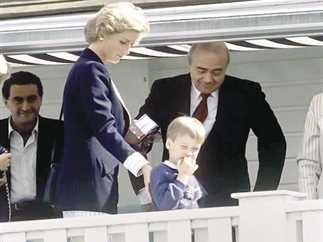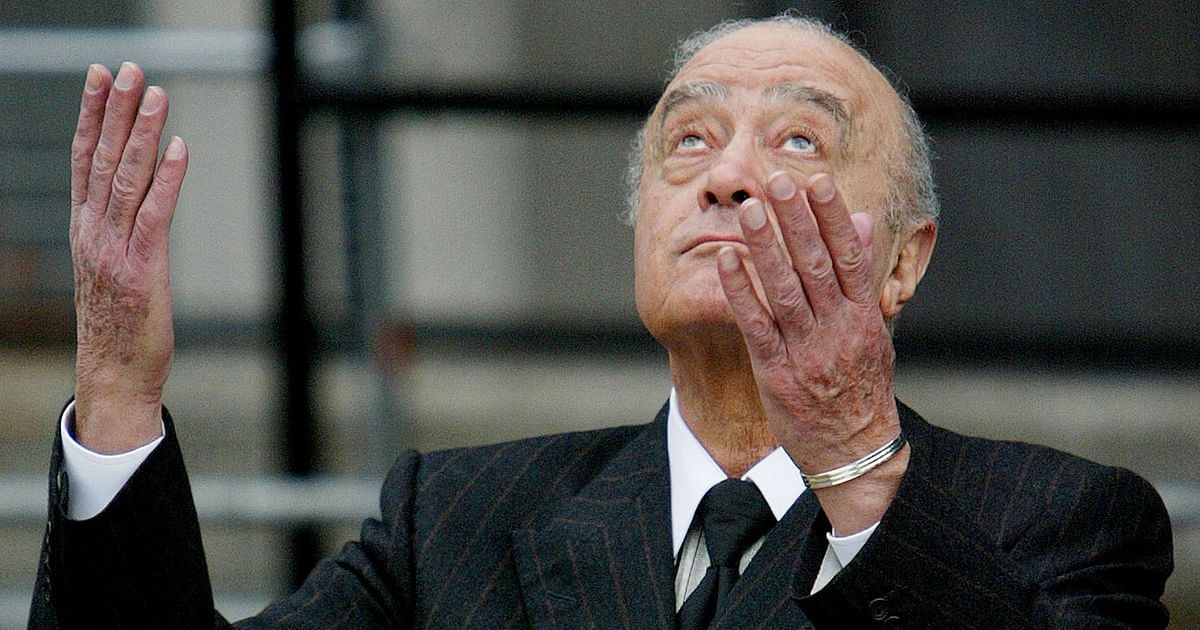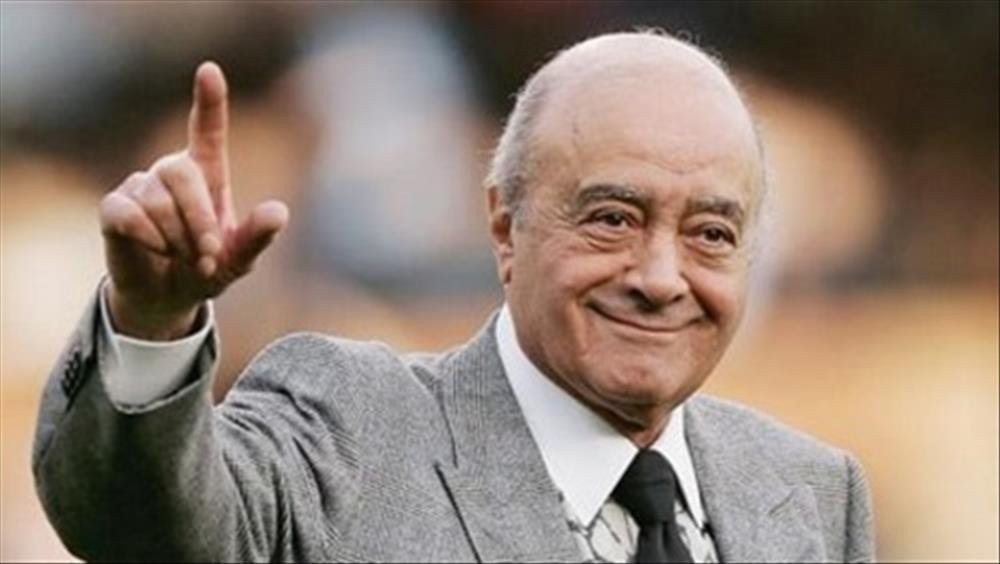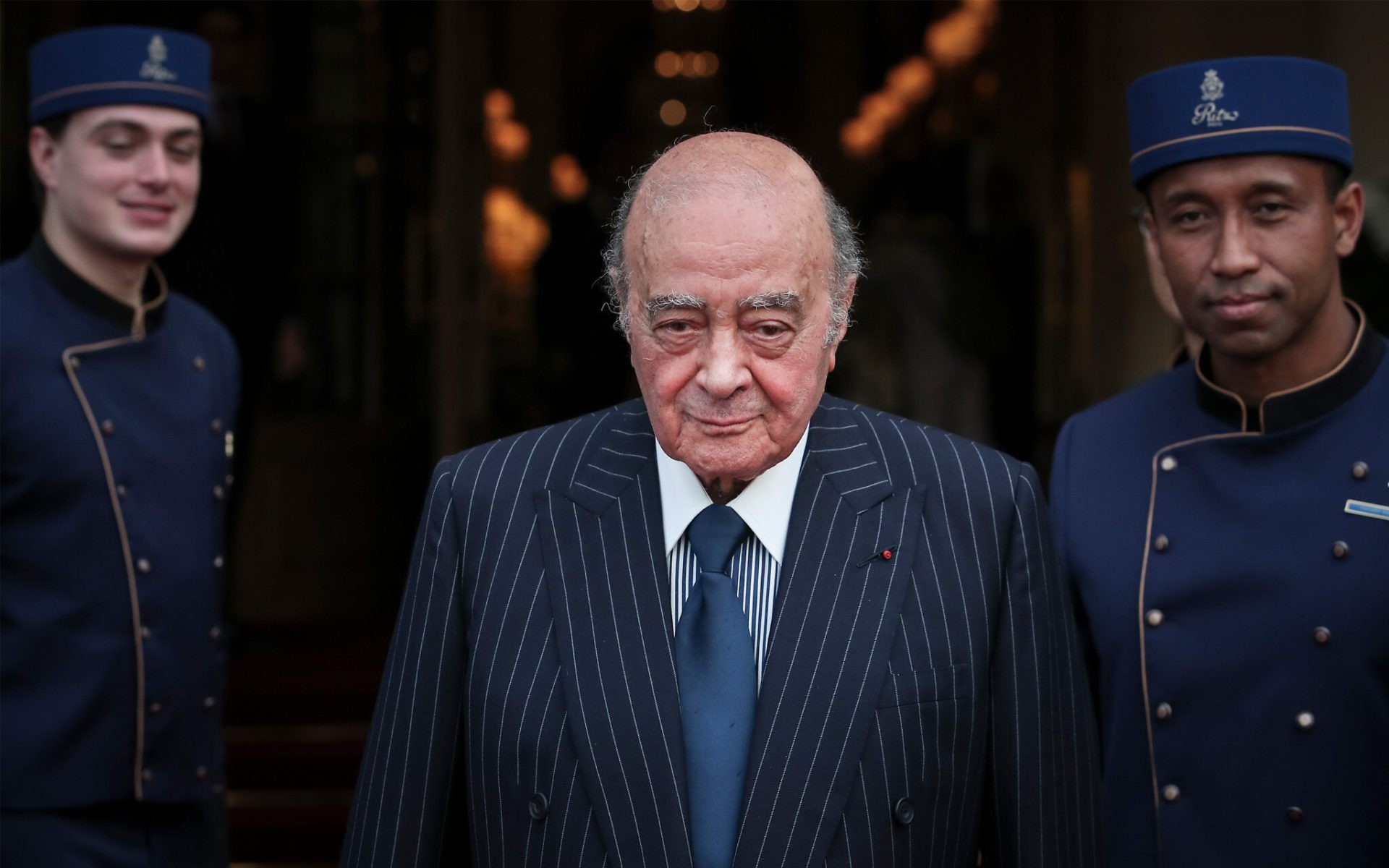The death of Egyptian billionaire Mohamed Al-Fayed has brought back to memory his famous story with the British Conservative party after the UK refused to grant him citizenship in 1993 for lack of "integrity," leading to the downfall of three senior politicians in the party.
Mohamed Al-Fayed had many exciting moments in his life, starting from a job as a "labourer" in the port of Alexandria, until he became one of the wealthiest people in Britain.

Mohamed Fayed was born in Alexandria, Egypt, in 1929, and his exact birth date is unknown.
He worked as a street vendor selling carbonated drinks in the port of Alexandria, but luck was on his side in the mid-1950s when he met Saudi writer Samira Khashoggi, sister of the well-known billionaire and arms dealer Adnan Khashoggi, and later married her.
After marrying Samira, Adnan gave him a job that allowed him to enter the most influential social circles in London and the Gulf countries.
In the 1960s, Mohamed Al-Fayed amassed a fortune through deals and transactions with wealthy people around the world, starting with the Gulf sheikhs and ending with Papa Doc Duvalier, the famous Haitian dictator.

He later founded his own shipping company in Egypt and became the financial advisor to the Sultan of Brunei.
Mohamed Fayed moved to Britain in 1974 and added "Al-" to his surname, becoming Mohamed Al-Fayed. This addition was mockingly addressed by the satirical magazine "Private Eye," which nicknamed him "the phony pharaoh."
In 1979, Mohamed and his brother Ali bought the luxurious Ritz hotel in Paris. Six years later, Mohamed Al-Fayed outbid the Lonrho conglomerate in a battle to buy the prestigious Harrods department store in central London.
In 1990, "Tiny Rowland," chairman of the Lonrho group, waged a bitter war against Al-Fayed, resulting in a conflict. A report by the Department of Trade and Industry on the dispute concluded that the Al-Fayed family lied about their social background and the source of their wealth.
Although the conflict with Rowland ended in 1993, it likely contributed to preventing Mohamed Al-Fayed from obtaining British citizenship. Al-Fayed saw the decision to deny him citizenship as an insult to his dignity and said at the time, "Why don't they give me a British passport? I own Harrods and employ thousands of people in this country."

The disappointment from not getting citizenship led Al-Fayed to claim in the press that two Conservative ministers, Neil Hamilton and Tim Smith, received money from him in exchange for asking questions in the House of Commons that served his interests.
As a result, both ministers were forced to leave the government due to the scandal. Hamilton, who denied Al-Fayed's allegations, lost a defamation case against the Harrods owner in court. State Minister Jonathan Aitken also resigned after Al-Fayed revealed that he had stayed for free at the Ritz hotel in Paris at the same time as a group of Saudi arms dealers. Aitken ultimately went to prison for perjury, causing long-term damage to the Conservative Party by Al-Fayed's revenge.
Among Al-Fayed's many deals, he bought Fulham Football Club in 1997 and owned a 50,000-acre estate in Scotland, which he turned into one of the country's tourist destinations.
For many years, Al-Fayed curried favor with the British royal family and sponsored events such as the annual international horse race, the "Windsor Horse Show."
In February 2008, he presented evidence in the investigation into the deaths of his son Dodi and Diana, Princess of Wales, accusing Prince Philip, husband of Queen Elizabeth, of ordering their assassination in collusion with the British intelligence service MI6.
In May 2010, Mohamed Al-Fayed sold the famous Harrods department store in central London to Qatar Holding for 1.5 billion pounds sterling.
Years after the death of his son Dodi, Mohamed Al-Fayed still felt bitter. In 2011, he financed a documentary titled "Unlawful Killing," which revisited his theory about a "conspiracy" behind the deaths of Princess Diana and his son.

再一次问好